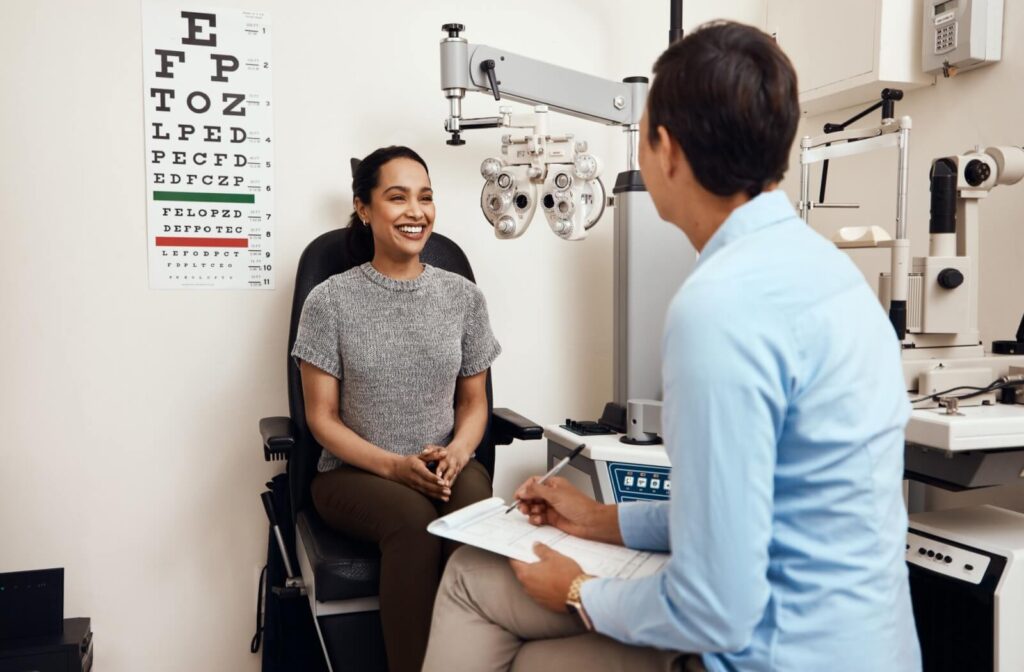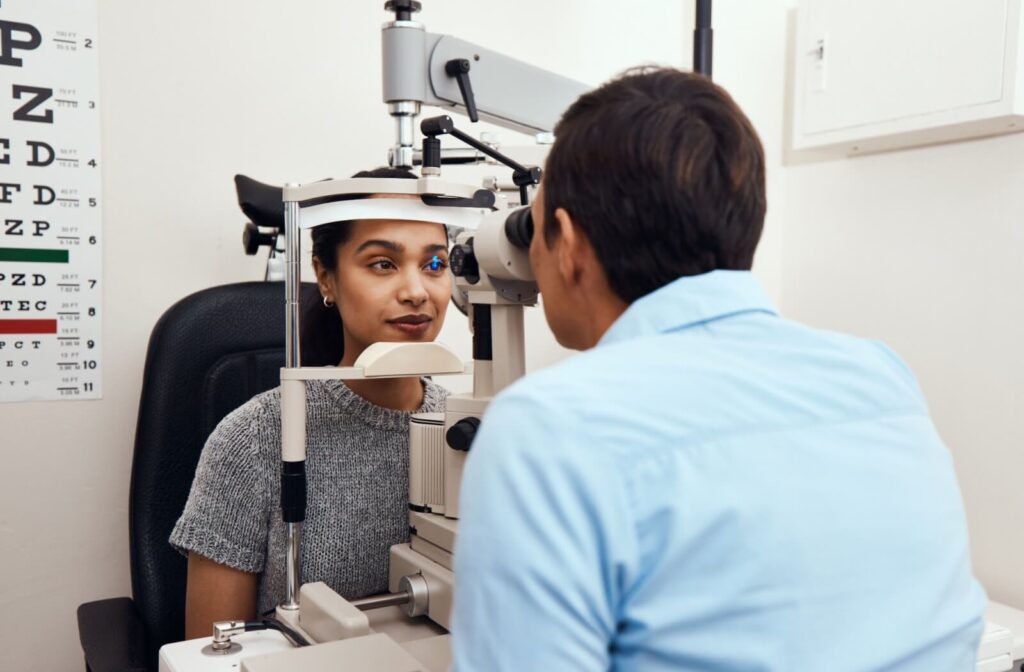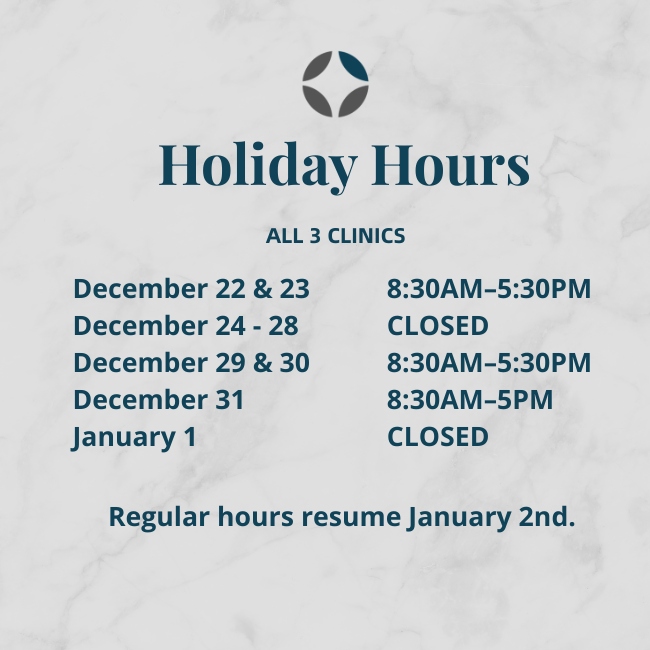Routine eye exams help safeguard your vision and provide insight into your overall health. Whether you’re caring for your child’s vision or navigating your senior years, the frequency of your eye exams can vary. While eye exams are generally recommended every 1 to 2 years, the right schedule for you may depend on your age, health status, and any existing eye or vision conditions.
Regular visits to your eye doctor can detect subtle changes in vision, reveal early signs of eye disease, and even flag underlying health conditions like diabetes or high blood pressure. Understanding how often to schedule these appointments is a simple but important step in protecting your long-term eye health—and seeing life clearly at every stage.
How Often Should You See an Eye Doctor?
Clear vision plays a vital role in daily life, yet eye health is often overlooked until noticeable symptoms appear. Regular eye exams are one of the most effective ways to preserve vision, detect potential health issues, and maintain overall well-being. But how often should someone have their eyes checked? The answer depends on age, risk factors, and overall health.
Children & Teens: Supporting Early Development
A child’s eyes go through rapid development in their early years, making routine exams especially important. Experts recommend:
- First eye exam: Between 6 and 12 months old
- Second exam: Around age 3
- Third exam: Before starting school
- Annual exams: From school age onward
Regular exams can catch conditions such as amblyopia (lazy eye), strabismus (eye misalignment), and early refractive errors like myopia (nearsightedness). Detecting and managing these issues early supports learning and development, both in and out of the classroom.
Adults (18–60): Keeping Vision Sharp
For adults with no known vision problems or eye health concerns, a comprehensive eye exam every 2 years is typically recommended. However, more frequent visits may be necessary for those with:
- A personal or family history of eye disease
- Diabetes, high blood pressure, or other systemic health conditions
- Corrective lenses
- Visually demanding work environments
Annual exams in these cases can help monitor changes in vision and detect issues before they become more serious.
Seniors (60+): Staying Ahead of Age-Related Concerns
Aging increases the risk of several eye diseases that can affect vision and quality of life. For those over 60, yearly eye exams are recommended. Age-related conditions such as glaucoma, cataracts, macular degeneration, and diabetic eye disease often develop gradually. Early detection can make a significant difference in slowing progression and preserving sight.
What Happens During an Eye Exam?
A routine eye exam is more than just checking whether you need new glasses. It’s a full assessment of visual acuity and eye health, often tailored to individual needs. While procedures may vary slightly, most comprehensive exams include the following:
Medical History Review
Before the exam begins, your optometrist will ask about any current symptoms, past eye conditions, systemic health issues, and family history. This information helps guide the rest of the assessment.
Visual Acuity Testing
This classic part of the exam involves reading from an eye chart to measure how clearly you can see at various distances.
Refraction Test
Using a device called a phoropter, the optometrist helps determine the most accurate lens prescription by asking which lenses provide clearer vision.
Eye Health Evaluation
Special instruments allow the optometrist to examine both the outer eye and inner structures, such as the retina and optic nerve. This part of the exam is crucial for identifying early signs of disease.
Pupil Dilation (if Needed)
Dilating eye drops may be used to widen the pupils for a better view inside the eye. Though temporary blurriness can occur, dilation offers a more detailed look at areas that aren’t visible otherwise.
What Can an Eye Exam Reveal?
Eye exams are a gateway to understanding more than just your eyesight. They can detect a wide range of conditions, both ocular and systemic.
Refractive Errors
Common issues like myopia, hyperopia (farsightedness), astigmatism, and presbyopia (age-related near-vision difficulty) are often diagnosed and corrected during an exam.
Eye Diseases
Regular eye exams can catch issues like cataracts, glaucoma, macular degeneration and diabetic retinopathy, many of which develop slowly and show no early symptoms.
Systemic Health Conditions
The eyes can also reflect broader health concerns. Optometrists may detect signs of:
- Diabetes: Through changes in the retinal blood vessels
- Hypertension: Via signs of vascular stress in the eye
- Autoimmune diseases: Through inflammation or other changes in eye tissue
- Thyroid conditions: Indicated by eye protrusion or vision changes
- Vitamin deficiencies: Symptoms like night blindness may be a clue
It’s easy to postpone an eye exam—especially if your vision seems fine. However, many eye and health conditions progress silently. Without routine checkups, important signs can go unnoticed until irreversible damage has occurred.

Why Skipping Regular Exams Can Be Risky
Risks Include:
- Undetected vision changes: Small shifts in vision may not be obvious but can impact daily life and lead to headaches or eye strain.
- Late-stage disease detection: Eye diseases like glaucoma are often symptom-free in early stages, making regular exams essential for early treatment.
- Missed health clues: Eyes are one of the few places where blood vessels can be seen directly, making them a useful window into overall health.
- Increased accident risk: Poor vision can affect depth perception and reaction time, raising the chances of falls or driving-related accidents.
Protect Your Vision with Regular Care
Caring for your vision is an important part of maintaining your overall health. Regular eye exams tailored to your age and lifestyle can help detect issues early—often before symptoms appear—and keep you seeing clearly at every stage of life.
The friendly team at Doctors EyeCare in Red Deer and Sylvan Lake is here to support your long-term eye health with personalized, thorough care. Book your next eye exam today and take a simple step toward clearer, healthier vision.



